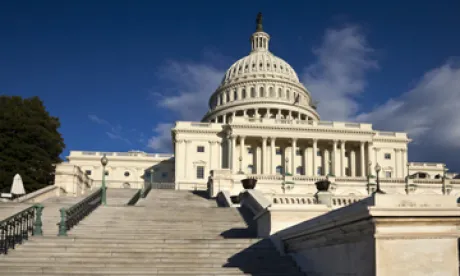On June 24 and 25, 2015, lawmakers in Congress passed two long-awaited trade bills: a bill providing the president with Trade Promotion Authority (TPA); and a bill reauthorizing the African Growth and Opportunity Act (AGOA), the Generalized System of Preferences (GSP), and tariff preference levels for imports from Haiti. The Trade Preferences Extension Act of 2015, which reauthorizes AGOA and GSP also includes provisions concerning antidumping, tariff classification, and offsets. The last bill providing TPA expired on July 1, 2007. Similarly, GSP expired July 31, 2013. The bills have been sent to President Obama for his signature. We anticipate that U.S. Customs and Border Protection (CBP) will then provide guidance on the implementation of the law.
The Trade Preferences Extension Act extends GSP through December 31, 2017, an, perhaps just as importantly, provides retroactive relief to eligible products that were imported during the program’s lapse. This retroactive application of GSP duty preferences is significant given that many pending GSP claims would otherwise be time-barred based on finality of liquidation provisions under the customs laws.
The last time around, importers who continued to claim GSP upon entry by claiming the proper Special Preference Indicator (SPI) and paying duties received refunds automatically after GSP was renewed. Importers who did not claim GSP at the time of entry had to file a request with CBP within 180 days after the new GSP bill was signed into law in order to receive the GSP duty preference (either by Post Summary Correction or Protest, depending on liquidation status). No retroactive claims were allowed after the 180-day period.
A similar provision appears in the current renewal bill. However, this time there are likely to be liquidated entries outside of the reach of the administrative protest mechanism that are eligible for refunds. The bill states that entries of covered articles to which preferential treatment would have applied during the period between July 31 through the effective date (30 days after the law is enacted by President Obama’s signature) will be liquidated or reliquidated as though the entry occurred on the effective date. Moreover, the bill specifically states that it will not be limited by the time period in which importers have to protest an entry under 19 U.S.C. § 1514. However, importers who did not claim GSP at the time of entry will still only have 180 days after the effective date to file refund requests with CBP.
While we await CBP’s implementation instructions, importers should consider the best method for claiming GSP duty-free treatment on entries made after July 31, 2013, since the bill allows for retroactive application. Accordingly, we recommend that importers carefully track entries that would qualify for GSP treatment to prepare for the timely filing of claims and to ensure that all appropriate duties are refunded. Although importers who claimed GSP treatment at the time of entry received automatic refunds the last time the program lapsed, those who do not receive refunds within a few months after the law takes effect may want to consider contacting CBP or submitting a list all eligible entries along with a specific request to reliquidate.





 />i
/>i
